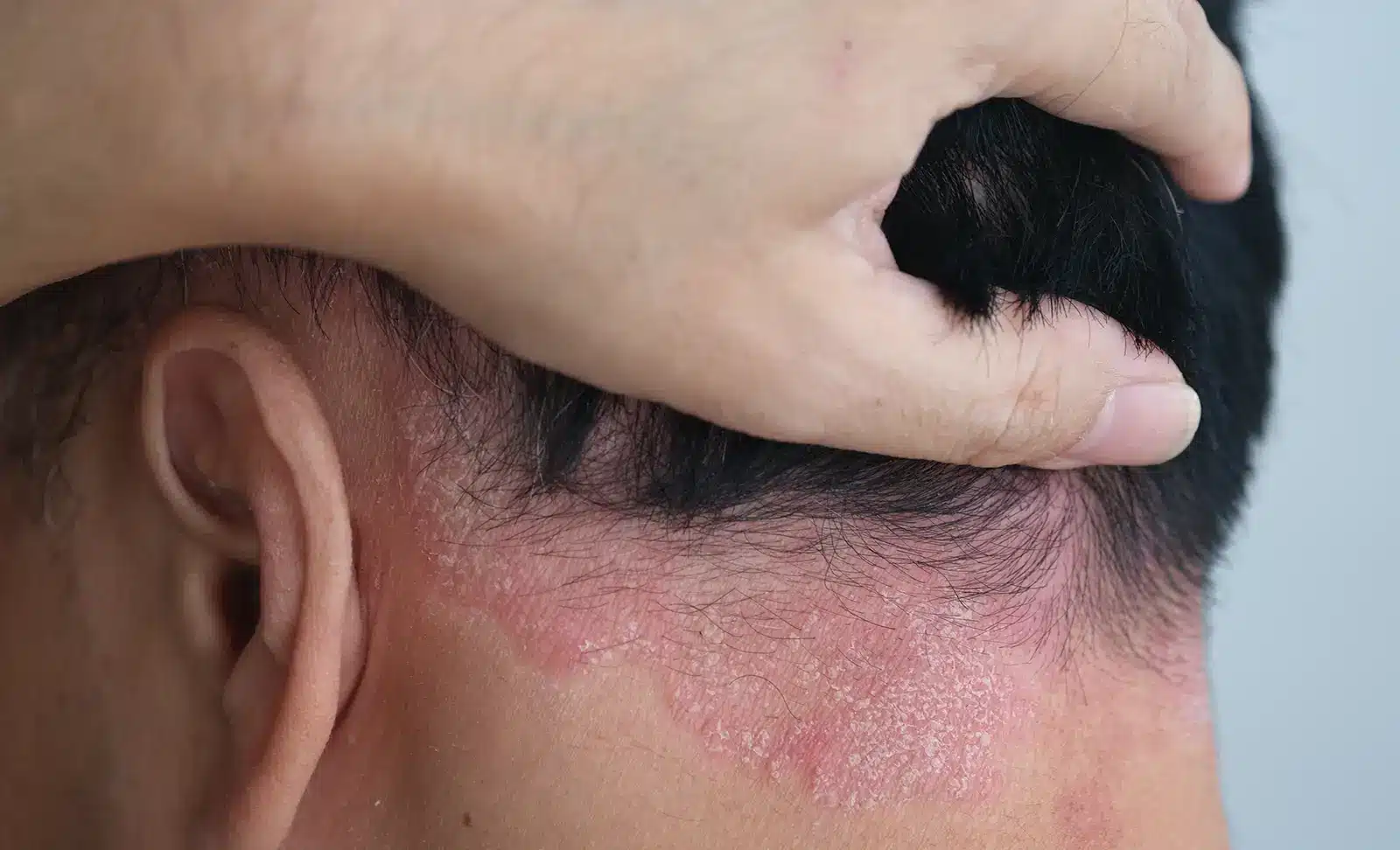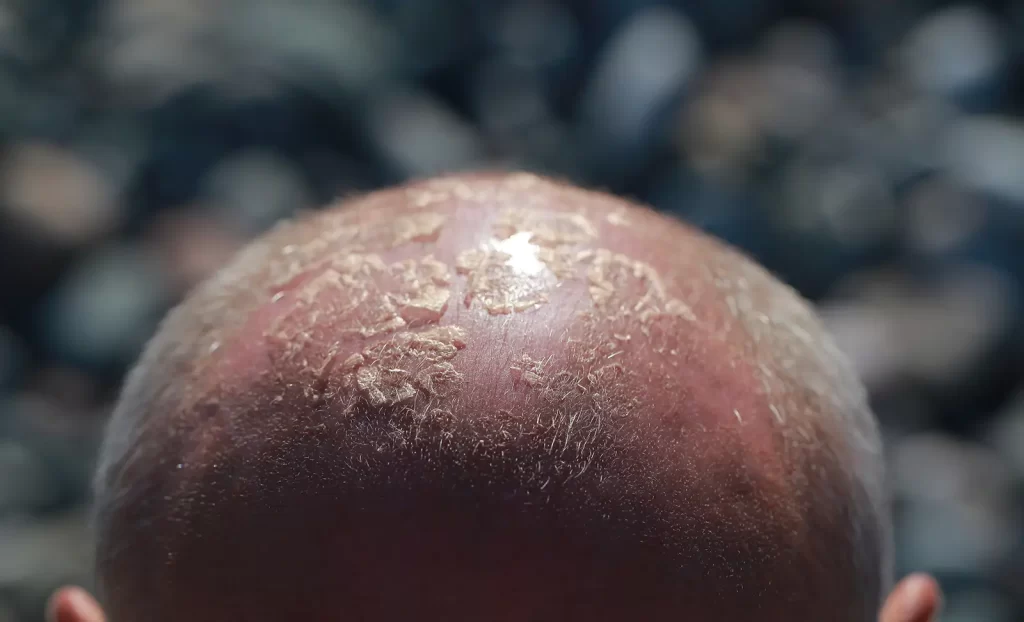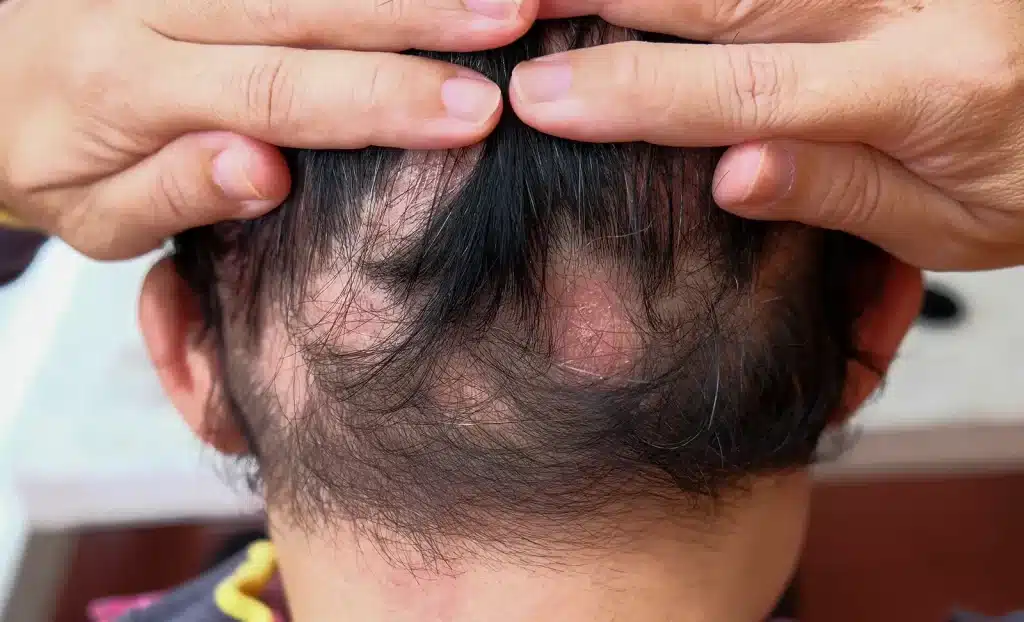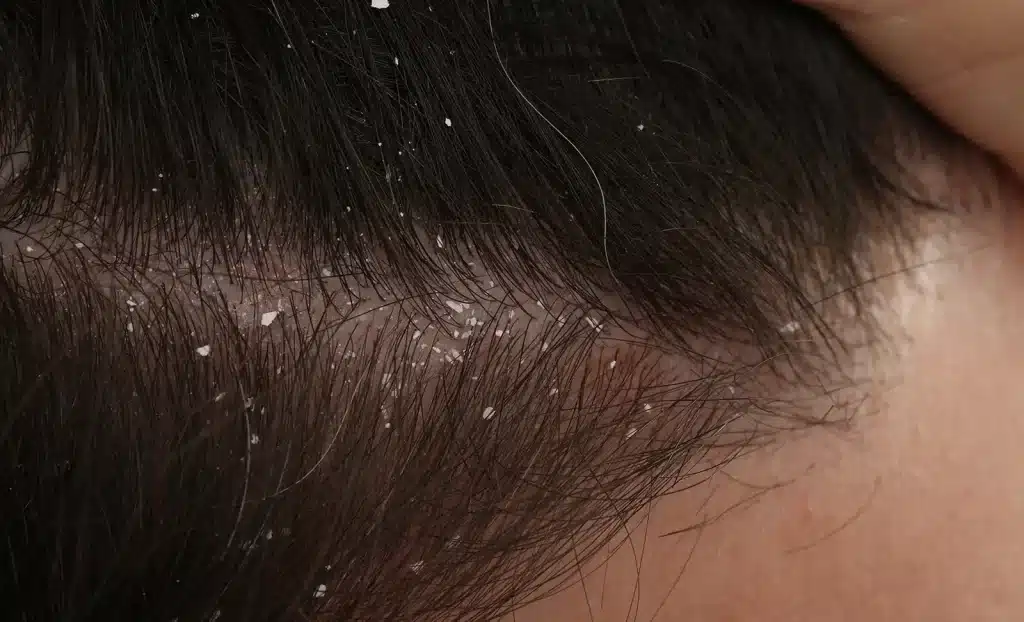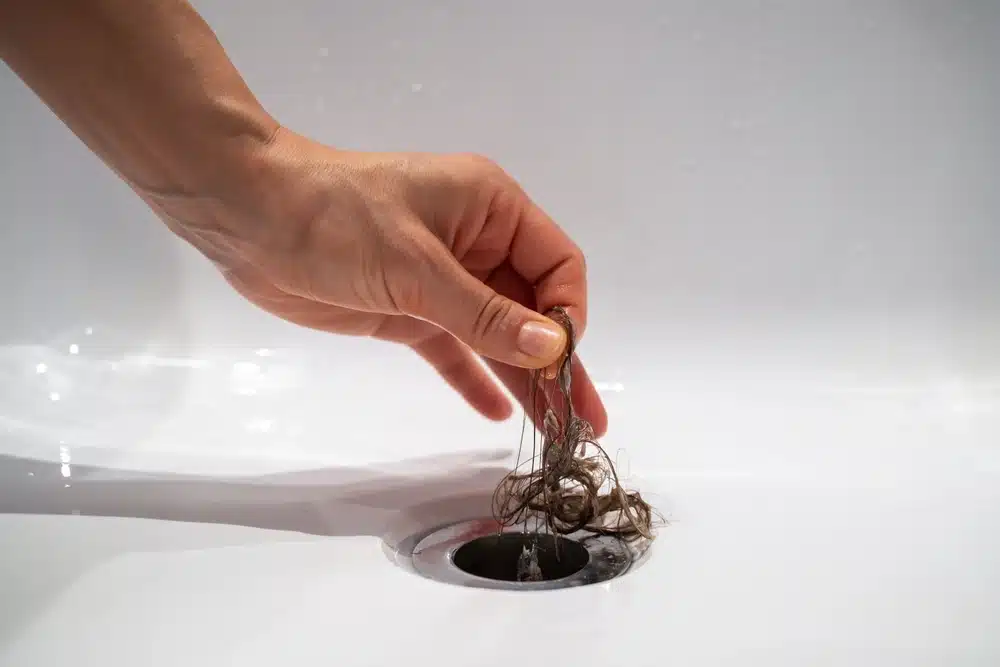A burning scalp can be caused by a variety of conditions, including scalp psoriasis and seborrheic dermatitis. Each of the causes has its own distinct symptoms, so reading each one here can help you figure out what’s causing your burning scalp. Treatments typically involve topical products, for example, anti-dandruff shampoos if a burning scalp is caused by dandruff.
- What Does a Burning Scalp Feel Like?: A burning scalp will often feel slightly painful with a tingling sensation. It’s very similar to that of a sunburn. Sometimes, the burning scalp will be sore to the touch.
- What Are the Common Causes of a Burning Scalp?: A burning scalp has several potential causes, with some of the most common being scalp psoriasis, dandruff, and sunburn.
- What Symptoms Typically Accompany a Burning Scalp?: A burning scalp might also feel numb and itchy. There may also be some visible symptoms such as a flaky scalp, peeling skin, redness, and even hair loss.
- Should You See a Doctor for a Burning Scalp?: It’s typically best to schedule an appointment with a doctor if you have a burning scalp. This is especially true if you do not know the root cause and the burning is particularly severe or doesn’t go away.
When your scalp burns, you may worry about what’s causing it and the potential other symptoms it could lead to. After all, it’s important to take care of your scalp – especially considering how much your scalp’s health affects your hair health and density. In this article, learn all about the different causes of a burning scalp and the symptoms and treatment options for each.
Scalp Psoriasis
Psoriasis is an autoimmune disease that can affect different parts of the body. The one we’re talking about here is scalp psoriasis, which, as the name suggests, directly targets the scalp. Here are the symptoms:
- Inflamed Skin
- Skin Plaques
- Itchy Scalp
Scalp psoriasis can also give you a burning sensation on the scalp, especially when it is at its most inflamed. It could even lead to temporary hair loss. While scalp psoriasis does not have a cure, there are plenty of treatment options to keep symptoms managed, including topical steroids and phototherapy.
Seborrheic Dermatitis
Burning scalp is often caused by skin conditions, including seborrheic dermatitis, a common skin disease that causes inflamed, scaly, oily skin. Seborrheic dermatitis often appears in the body’s oiliest parts, including the scalp. Other than a burning sensation on the scalp, the symptoms are:
- Skin Lesions
- A Red Rash
- Mild or Intense Itching
- Flaking Skin
Unfortunately, seborrheic dermatitis does not have a cure. The most common treatments that can help manage symptoms (and sometimes eliminate them completely) include medicated shampoos, corticosteroids, other topical creams, and light therapy.
Sunburn
Most people have experienced sunburn at some point in their lives. In some cases, you can get sunburn on the scalp, especially if you have any of your scalp exposed. For example, people with finer, thinner hair may find scalp sunburn happens to them more easily (although everyone should be wary of it!). If you do experience scalp sunburn, symptoms include:
- Redness
- Pain
- Blisters
- Itching
- Dryness
- A Burning Sensation
To treat scalp sunburn, you should stay out of the sun, apply a cooling cream/moisturiser (aloe vera works well), and avoid hot showers. The most important part here is to avoid sunburn in the future, as it can lead to serious health problems like skin cancer. Some of the worst cases can even lead to third-degree burns. To avoid sunburn on the scalp, always wear a hat when it’s shining outside and apply SPF to the areas of the scalp/head that are exposed.
Alopecia Areata
Another condition that can cause a burning sensation on the scalp is alopecia areata. Alopecia areata is an autoimmune disease that results in hair loss. Often, the disease begins with the person losing small circles of hair from the scalp, leading to bald patches, and, eventually, they may lose hair all over. Here are the symptoms:
- Sudden Hair Loss
- Oval Hair Loss Patches
- Nail Pitting
Sometimes, alopecia areata gets better, and the person can regrow a full head of hair – in other cases, it can lead to total hair loss, also known as alopecia totalis. There are several treatment types for alopecia – some work well for certain patients but not so great for others. The most common treatments include corticosteroids, topical immunotherapy, and minoxidil.
Chemical Burns
Sometimes, hair products can lead to chemical burns. If you use something like bleach on your hair and scalp and experience symptoms such as redness, blisters, swelling, pain, burning, and itching, you should rinse the scalp with cold water as soon as possible, removing all of the chemical product that caused the symptoms. If the symptoms progress or you have signs of infection, you should seek immediate medical attention. In some cases, chemical burns on the scalp can lead to hair loss (as the burn damages the hair follicle), so you want to avoid this at all costs. In severe cases, treatments may include antibiotics and skin grafts. A person may also need a hair loss treatment if they experience hair loss.
Telogen Effluvium
Telogen effluvium is a type of hair loss that occurs when a person has gone through extreme amounts of stress, often due to changes in hormones, medication, or metabolic stress. While this type of hair loss is usually temporary (it will grow back!), it can be difficult to deal with and make the stress worse. Symptoms include:
- Thinning Hair
- Hair Shedding
- A Tender Scalp
Sometimes, the tenderness of the scalp can feel like a burning sensation. Treatments vary from supplements, a change in diet, treating underlying hormonal problems, and minoxidil.
Trichodynia
Trichodynia is also known as burning scalp syndrome, and, as the name suggests, leads to the main symptoms of a burning scalp. Trichodynia is always accompanied by hair loss. As well as burning, you may experience itchiness, red patches, hair shedding, and a sort of crawling sensation along the scalp. There are several types of treatments, from topical therapies to hair loss medications like minoxidil. Some of the most promising treatments that have been studied include antihistamines, systemic corticosteroids, and propranolol. [1]
Tight Hairstyles
In some cases, tight hairstyles can cause pain on the scalp that feels like burning. Particular hairstyles like a pulled-pack ponytail, dreadlocks, tightly braided hair, and cornrows can lead to this – as can wearing hair extensions, which pull at the strands. Tight hairstyles can cause burning on their own, but they can also lead to traction alopecia, a type of hair loss caused by the pulling of the hair. Hair can grow back from this depending on the severity, although sometimes it can be permanent if the hair follicle has been destroyed. The best move here is to stop wearing tight hairstyles as soon as possible. If you have permanent hair loss, something like a hair transplant may be necessary to grow back a full head of hair.
Dandruff
Dandruff is very common, affecting around half of all adults. [2] The main symptoms include:
- Flakes on the Scalp
- Scaly Skin
- Itchiness
It can also lead to a burning sensation. The causes of dandruff vary from person to person – it may occur more in people with dry, irritated, or oily skin. People with skin conditions like eczema may also be more prone to dandruff. There are a variety of treatments available both over the counter and through a prescription. Anti-dandruff shampoos can be helpful, and in more serious cases your doctor may prescribe a ketoconazole (antifungal) shampoo.
Allergies
Another potential cause of a burning scalp is an allergic reaction. If your scalp gets exposed to something you are allergic to, you may experience symptoms such as redness, itchiness, and burning. In this case, you should avoid using any product that contains the irritant. If you’re unsure of the irritant, consider going to a doctor and getting an allergy test.
Lupus
Lupus is a chronic condition that targets the immune system, causing symptoms such as:
- Joint Pain
- Tiredness
- Swelling
Due to skin inflammation, lupus may also lead to a burning sensation on the scalp and hair loss. If you think you have lupus, or you exhibit any of the symptoms, see a doctor as soon as possible, as there are treatments that can help you manage this long-term condition.
When to See a Doctor
See a doctor if you have a burning sensation on the scalp and you don’t know the root cause, as a good dermatologist will be able to assess your scalp and figure out what’s going on – in turn, you’ll receive the correct treatment. Some of these burning scalp causes listed above require medical attention, too. For example, if you suspect you have something like lupus, alopecia areata, or a skin condition like psoriasis, it’s best to speak to a doctor so you can start a treatment plan as soon as possible. The sooner you treat the cause, the less likely burning scalp thinning hair, or total hair loss will occur.
Need Help with Hair Loss?
A burning scalp may not be your only concern – in some cases, burning in scalp with hair loss can occur, which can be even more disheartening and worrisome. Nobody wants to lose their hair, after all. If you have experienced any form of hair loss alongside burning, it’s best to speak to a doctor or hair loss clinic about your symptoms to see the best treatment option for you. At Harley Street Hair Clinic, we offer expert advice to all our patients; we can create a hair restoration treatment plan that works for you. If you’re interested, download our hair track app to get in touch with our team.
In Summary
As you can see, a burning scalp can be caused by a wide variety of issues, some more serious than others. It might just be a case of an irritant in a new hair product you’re using, or it may be indicative of a more serious problem like alopecia areata.
If your scalp burning coincides with hair loss, it’s crucial to seek treatment as soon as possible to reduce the amount of damage. To see the difference a hair transplant can make, head over to our patients gallery where you’ll find before and after photos of our patients.
Sources:
- https://www.ncbi.nlm.nih.gov/pmc/articles/PMC11046174/#:~:text=Systemic%20therapies%20suggested%20include%20oral,morbid%20psychiatric%20conditions%20%5B4%5D.
- https://www.unilever.com/news/news-search/2020/one-step-closer-to-finding-the-root-cause-of-dandruff/#:~:text=Dandruff%20can%20affect%20around%2050%25%20of%20adults.
